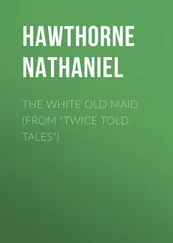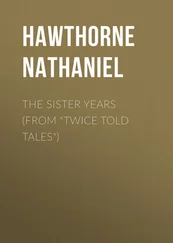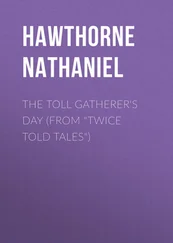Nathaniel Hawthorne - Twice-Told Tales
Здесь есть возможность читать онлайн «Nathaniel Hawthorne - Twice-Told Tales» — ознакомительный отрывок электронной книги совершенно бесплатно, а после прочтения отрывка купить полную версию. В некоторых случаях можно слушать аудио, скачать через торрент в формате fb2 и присутствует краткое содержание. Жанр: literature_19, foreign_antique, foreign_prose, на английском языке. Описание произведения, (предисловие) а так же отзывы посетителей доступны на портале библиотеки ЛибКат.
- Название:Twice-Told Tales
- Автор:
- Жанр:
- Год:неизвестен
- ISBN:нет данных
- Рейтинг книги:5 / 5. Голосов: 1
-
Избранное:Добавить в избранное
- Отзывы:
-
Ваша оценка:
- 100
- 1
- 2
- 3
- 4
- 5
Twice-Told Tales: краткое содержание, описание и аннотация
Предлагаем к чтению аннотацию, описание, краткое содержание или предисловие (зависит от того, что написал сам автор книги «Twice-Told Tales»). Если вы не нашли необходимую информацию о книге — напишите в комментариях, мы постараемся отыскать её.
Twice-Told Tales — читать онлайн ознакомительный отрывок
Ниже представлен текст книги, разбитый по страницам. Система сохранения места последней прочитанной страницы, позволяет с удобством читать онлайн бесплатно книгу «Twice-Told Tales», без необходимости каждый раз заново искать на чём Вы остановились. Поставьте закладку, и сможете в любой момент перейти на страницу, на которой закончили чтение.
Интервал:
Закладка:
Nathaniel Hawthorne
Twice-Told Tales
THE GRAY CHAMPION
There was once a time when New England groaned under the actual pressure of heavier wrongs than those threatened ones which brought on the Revolution. James II, the bigoted successor of Charles the Voluptuous, had annulled the charters of all the colonies, and sent a harsh and unprincipled soldier to take away our liberties and endanger our religion. The administration of Sir Edmund Andros lacked scarcely a single characteristic of tyranny: a Governor and Council, holding office from the King, and wholly independent of the country; laws made and taxes levied without concurrence of the people immediate or by their representatives; the rights of private citizens violated, and the titles of all landed property declared void; the voice of complaint stifled by restrictions on the press; and, finally, disaffection overawed by the first band of mercenary troops that ever marched on our free soil. For two years our ancestors were kept in sullen submission by that filial love which had invariably secured their allegiance to the mother country, whether its head chanced to be a Parliament, Protector, or Popish Monarch. Till these evil times, however, such allegiance had been merely nominal, and the colonists had ruled themselves, enjoying far more freedom than is even yet the privilege of the native subjects of Great Britain.
At length a rumor reached our shores that the Prince of Orange had ventured on an enterprise, the success of which would be the triumph of civil and religious rights and the salvation of New England. It was but a doubtful whisper: it might be false, or the attempt might fail; and, in either case, the man that stirred against King James would lose his head. Still the intelligence produced a marked effect. The people smiled mysteriously in the streets, and threw bold glances at their oppressors; while far and wide there was a subdued and silent agitation, as if the slightest signal would rouse the whole land from its sluggish despondency. Aware of their danger, the rulers resolved to avert it by an imposing display of strength, and perhaps to confirm their despotism by yet harsher measures. One afternoon in April, 1689, Sir Edmund Andros and his favorite councillors, being warm with wine, assembled the red-coats of the Governor's Guard, and made their appearance in the streets of Boston. The sun was near setting when the march commenced.
The roll of the drum at that unquiet crisis seemed to go through the streets, less as the martial music of the soldiers, than as a muster-call to the inhabitants themselves. A multitude, by various avenues, assembled in King Street, which was destined to be the scene, nearly a century afterwards, of another encounter between the troops of Britain, and a people struggling against her tyranny. Though more than sixty years had elapsed since the pilgrims came, this crowd of their descendants still showed the strong and sombre features of their character perhaps more strikingly in such a stern emergency than on happier occasions. There were the sober garb, the general severity of mien, the gloomy but undismayed expression, the scriptural forms of speech, and the confidence in Heaven's blessing on a righteous cause, which would have marked a band of the original Puritans, when threatened by some peril of the wilderness. Indeed, it was not yet time for the old spirit to be extinct; since there were men in the street that day who had worshipped there beneath the trees, before a house was reared to the God for whom they had become exiles. Old soldiers of the Parliament were here, too, smiling grimly at the thought that their aged arms might strike another blow against the house of Stuart. Here, also, were the veterans of King Philip's war, who had burned villages and slaughtered young and old, with pious fierceness, while the godly souls throughout the land were helping them with prayer. Several ministers were scattered among the crowd, which, unlike all other mobs, regarded them with such reverence, as if there were sanctity in their very garments. These holy men exerted their influence to quiet the people, but not to disperse them. Meantime, the purpose of the Governor, in disturbing the peace of the town at a period when the slightest commotion might throw the country into a ferment, was almost the universal subject of inquiry, and variously explained.
"Satan will strike his master-stroke presently," cried some, "because he knoweth that his time is short. All our godly pastors are to be dragged to prison! We shall see them at a Smithfield fire in King Street!"
Hereupon the people of each parish gathered closer round their minister, who looked calmly upwards and assumed a more apostolic dignity, as well befitted a candidate for the highest honor of his profession, the crown of martyrdom. It was actually fancied, at that period, that New England might have a John Rogers of her own to take the place of that worthy in the Primer.
"The Pope of Rome has given orders for a new St. Bartholomew!" cried others. "We are to be massacred, man and male child!"
Neither was this rumor wholly discredited, although the wiser class believed the Governor's object somewhat less atrocious. His predecessor under the old charter, Bradstreet, a venerable companion of the first settlers, was known to be in town. There were grounds for conjecturing, that Sir Edmund Andros intended at once to strike terror by a parade of military force, and to confound the opposite faction by possessing himself of their chief.
"Stand firm for the old charter Governor!" shouted the crowd, seizing upon the idea. "The good old Governor Bradstreet!"
While this cry was at the loudest, the people were surprised by the well-known figure of Governor Bradstreet himself, a patriarch of nearly ninety, who appeared on the elevated steps of a door, and, with characteristic mildness, besought them to submit to the constituted authorities.
"My children," concluded this venerable person, "do nothing rashly. Cry not aloud, but pray for the welfare of New England, and expect patiently what the Lord will do in this matter!"
The event was soon to be decided. All this time, the roll of the drum had been approaching through Cornhill, louder and deeper, till with reverberations from house to house, and the regular tramp of martial footsteps, it burst into the street. A double rank of soldiers made their appearance, occupying the whole breadth of the passage, with shouldered matchlocks, and matches burning, so as to present a row of fires in the dusk. Their steady march was like the progress of a machine, that would roll irresistibly over everything in its way. Next, moving slowly, with a confused clatter of hoofs on the pavement, rode a party of mounted gentlemen, the central figure being Sir Edmund Andros, elderly, but erect and soldier-like. Those around him were his favorite councillors, and the bitterest foes of New England. At his right hand rode Edward Randolph, our arch-enemy, that "blasted wretch," as Cotton Mather calls him, who achieved the downfall of our ancient government, and was followed with a sensible curse, through life and to his grave. On the other side was Bullivant, scattering jests and mockery as he rode along. Dudley came behind, with a downcast look, dreading, as well he might, to meet the indignant gaze of the people, who beheld him, their only countryman by birth, among the oppressors of his native land. The captain of a frigate in the harbor, and two or three civil officers under the Crown, were also there. But the figure which most attracted the public eye, and stirred up the deepest feeling, was the Episcopal clergyman of King's Chapel, riding haughtily among the magistrates in his priestly vestments, the fitting representatives of prelacy and persecution, the union of church and state, and all those abominations which had driven the Puritans to the wilderness. Another guard of soldiers, in double rank, brought up the rear.
Читать дальшеИнтервал:
Закладка:
Похожие книги на «Twice-Told Tales»
Представляем Вашему вниманию похожие книги на «Twice-Told Tales» списком для выбора. Мы отобрали схожую по названию и смыслу литературу в надежде предоставить читателям больше вариантов отыскать новые, интересные, ещё непрочитанные произведения.
Обсуждение, отзывы о книге «Twice-Told Tales» и просто собственные мнения читателей. Оставьте ваши комментарии, напишите, что Вы думаете о произведении, его смысле или главных героях. Укажите что конкретно понравилось, а что нет, и почему Вы так считаете.












